After 1975
Interview with Venerable Thich Khong Tanh: The tactics of the Vietnamese authorities on religion are: repression, division, isolation, and enticement
Published on
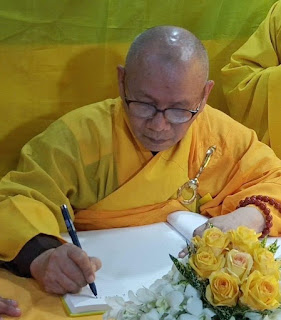
Editor’s Note: This is part of a series of interviews on the consistent policy of religious repression by the Vietnamese Communist regime. The interview was conducted in Vietnamese and has been translated by our staff. The interview was conducted with Venerable Thich Khong Tanh, Vice President of the Executive Council of the Unified Buddhist Church of Vietnam (UBCV or Giáo Hội Phật Giáo Việt Nam Thống Nhất), Co-Chair of the Vietnam Interfaith Council, Co-Chair of the Liaison Council of Internal and Overseas Affairs of Vietnam, Abbot of Lien Tri Pagoda in Second District, Saigon (Lien Tri Pagoda was seized and demolished by the authorities on September 8, 2016 without adequate compensation). Since 1977, Venerable Thich Khong Tanh himself has been imprisoned three times by the communist regime for a total of 15 years.
Tuesday, May 23, 2023
* Dear Venerable Master, we know that for many years now, Vietnam’s Religious Freedom Index has always been at a very low level in the world. Vietnam has twice been included in the list of [US government’s] “Countries of Particular Concern on Religious Freedom,” and on December 2, 2022, the US Department of State again put Vietnam on the “Special Watch List” because of serious violations of religious freedom. While the Vietnamese government has always said that such a view is biased, that there is religious freedom in Vietnam because many new pagodas have been built from the south to the north, including very large temples. The number of monks has increased, and the pagodas receive large numbers of visitors, etc. What do you think about this, Venerable Master?
Venerable Thich Khong Tanh: Indeed, the number of new temples, monks, and Buddhists has increased, and the population has also tripled or quadrupled compared to before 1975, so the demands of the people have also increased.
However, the construction of many large temples does not necessarily mean religious freedom. Large temples like Ba Vang, Tam Chuc, Bai Dinh… are mainly built for commercial purposes, attracting tourists to generate income and obtain foreign currency.
Religious freedom is a different matter. Religious freedom means that religions should be allowed to freely practice their faith, propagate their teachings widely, receive training, transmit their traditions, and provide moral education based on the principles of Truth, Goodness, and Beauty to the public.
The religious oppression by the Communist regime is clear and well-known worldwide! Any religious individuals or organizations that do not comply with the control and directives of the state are suppressed. It is extremely difficult to repair or construct temples, monasteries, shrines, or churches. Even minor renovations or additions to kitchens or small rooms without permits can result in fines, coercion, and demolition by the police.
* As Deputy Director of the Executive Council of the Unified Buddhist Church of Vietnam, [you must have a] good understanding what has happened to the Unified Buddhist Church for many years. Briefly, Venerable Master, why does the Communist regime suppress the UBCV and when did the suppression start?
Venerable Thich Khong Tanh: In 1981, the Communist government established a new Church called the Vietnamese Buddhist Church, which people often call the “State Church” or the “State-Owned Church” [Giáo Hội Quốc Doanh]. Since then, the UBCV has been outlawed! Monks, nuns and pagodas that do not follow the state-founded Church have been persecuted, isolated, not allowed to travel, and harassed on everything from places of residence to religious practices.
Strictly speaking, right after April 30, 1975, the day the Communists seized the South by force, they began to carry out repression and persecution against the UBCV!
* Could you tell me about some of the most specific, serious, and brutal cases of the Communist regime’s suppression of the UBCV since April 30, 1975?
Venerable Thich Khong Tanh: There have been so many cases although I don’t know and remember all! Right after the North Vietnamese Communist occupied South Vietnam, they destroyed the statue of Quan-Am (Kwanyin) Buddha in Phan Thiet, the outdoor Buddha statue of in Bien Ho, Pleiku, etc. They seized all the charity facilities, orphanage houses, Bo De primary and middle schools, the School of Youth for Social Service [Truong Thanh nien Phung su Xa hoi], Quang Duc Center, Quach Thi Trang Orphanage, Vietnam Quoc Tu, etc. If a temple refused to join the [government-organized] Patriotic Buddhist Liaison Committee, its affiliated monks and nuns would not be issued household registration and food ration cards, and would be forced to work in irrigation projects or enlist in the military.
On November 2, 1975, Venerable Thich Hue Hien and 11 monks and nuns of the Duoc Su Monastery in Can Tho set themselves on fire in protest because they were forced to leave the UBCV. Later, Brother Hanh Minh – Ho Tan Anh in Quang Nam self-immolated on September 2, 2001 while sending letters to the UBCV and the government to demand the right of the UBCV to operate, the right for people to practice religion, and the release of Venerable Thich Huyen Quang and Venerable Thich Quang Do from arrest. There was a Buddhist devotee (I don’t remember the name) who came to pay homage to the On Linh Mu tower in Hue and then self-immolated at the tower! In 2014, Nguyen Thi Tuyet Mai, dharma name Dong Xuan, burned herself in front of the Independence Palace. These self-immolations were always covered up and the bodies taken away! Or the government spread misinformation that the cause was a broken heart!
After April 30, 1975, most leaders of the UBCV, such as Venerable Thich Huyen Quang, Venerable Thich Quang Do, Venerable Thich Thuyen An, and Venerable Thich Thong Buu, Thich Nhat Thien, Thich Thong Hue, etc., were arrested and sent to prison. Some were murdered in prison like Venerable Thich Thien Minh, Advisor of the Institute of Secular Affairs! Some people were hospitalized [while under police custody] for just a few days and then died like Venerable Thich Tri Thu, Venerable Thich Duc Nhuan, and Venerable Thich Thanh Quang. Some were transferred from prison to the hospital and released when they were about to die, such as Venerable Thich Huyen Quang, Venerable Thich Buu Hue (Chief Representative of UBCV in Long Khanh Province), and Venerable Thich Quang Thanh (Chief Representative of UBCV in Binh Tuy Province).
The Communist authorities of Binh Dinh province forced Venerable Thich Tam Hoan (Deputy representative of the UBCV of Binh Dinh province) to destroy the outdoor statue of Amitabha Buddha in front of Long Khanh pagoda. Since he could not obey, he committed suicide to protect the Buddha statue!
Many others, such as Venerable Thich Ho Giac, Venerable Thich Tam Chau, Venerable Thich Huyen Vi, Venerable Thich Thanh Cat, Venerable Thich Man Giac, Venerable Thich Chanh Lac, Venerable Tac Phuoc, Venerable Nhu Hue, Dharma Master Thich Giac Duc, etc., fled the country!
It is worth mentioning that monks who were detained and executed like Venerable Thich Vien Thong (Pho Tinh Temple, An Nhon-Binh Dinh) or who died in prison have not been transparently disclosed!
The repression has continued for the past 48 years! Many pagodas and temples have been requisitioned and demolished by the state, such as An Cu pagoda belonging to the UBCV branch in Da Nang, and Son Linh Pagoda in Ngoc Hoi district, Kon Tum province, which was ransacked on December 13, 2022. Venerable Thich Thanh Quang of Giac Minh Pagoda of the UBCV in Da Nang was sick, hospitalized, and reported dead a few hours later by the hospital! The funeral was not over yet when a young monk who assumed his position immediately changed the sign from the UBCV to the state-owned Buddhist Church!
At the Son Linh Co Tu Pagoda in Ba Ria, Venerable Thich Hanh Duc rejected the state-created Buddhist Church and fought for the UBCV, and he was imprisoned for a decade because of that. The pagoda was expropriated and handed it over to monks of the State Church!
Local authorities destroyed other establishments of the UBCV such as Lien Tri Pagoda in Thu Thiem, Saigon. They demolished and used the gate of Phuoc Buu Pagoda as the gate of “Culture Village”! The monks in Thien Lam Co Tu in Tien Giang province were told to follow the State Church if the temple was to be restored. They wrecked the Charity Room of Boi Diep Temple [Tinh That] in Bao Loc, Lam Dong.
Suppression, harassment, and partial demolition have taken place in the cases of Phap Bien pagoda in Ho Tram, Dat Quang pagoda in Bau Lam commune, and Thien Quang pagoda in Xuyen Moc district (Ba Ria-Vung Tau province). Since 2021, the Abbot of Thien Quang pagoda has been harassed and threatened by the authorities if he did not follow the State Church!
* Could you please tell me about your personal experiences and experiences of being persecuted?
Venerable Thich Khong Tanh: Lien Tri Pagoda in District 9-Saigon has been the base of the UBCV since before 1975. In 1968, after the Tet Offensive, the Church appointed me as Abbot and Chief Representative of the UBCV in District 9, Do Thanh Saigon.
After April 30, 1975, the government renamed District 9 to Thu Duc District, and forced me to donate Lien Tri Pagoda to the state, while disbanding the Representative Council of the Unified Buddhist Church of Vietnam. Any temple that did not participate in the Patriotic Buddhist Liaison Committee would not be issued purchase permits for rice, sugar, milk, and essential food items. The authorities used the economy and household registration to control, bribe, and rule over the people! I remember during the years 1976-77, they arrested many intellectuals, politicians, artists, and religious clergy in the South and imprisoned them. I opposed these actions as well as the forced conscription of monks and their involvement in irrigation work. Therefore, I wrote a Petition to Mr. Pham Van Dong, demanding the release of Most Venerable Thich Huyen Quang, Most Venerable Thich Quang Do, and others…
On November 5, 1977, I organized and invited venerable representatives from various districts in the city to participate in a prayer session for Most Venerable Thich Huyen Quang, Most Venerable Thich Quang Do… at the Main Hall of An Quang Pagoda. The next day, the police summoned the participating monks for investigation and then released them. However, on November 7, 1977, dozens of police officers surrounded Lien Tri Pagoda, handcuffed me, blindfolded me, and forcibly took me to detention at Block C of Phan Dang Luu Detention Center… I was extremely fearful at that moment! A few days later, I learned that Most Venerable Thich Huyen Quang, Most Venerable Thich Quang Do, Most Venerable Thich Thuyen An… were also being detained in Block B, so I no longer felt lonely or afraid.
In June 1978, they transferred us to detention at Chí Hòa Hospital. Initially, we were held separately and then moved to the EH collective housing area, where we shared the same floor with Reverend Huyen Linh, Elder Thai Lang Nghiem, Truong Quang Anh Thai, Nguyen Chau A, Ly Nghiep Phu… On the lower floor, there were Doctor Nguyen Dan Que, Professor Doan Viet Hoat, Deputy Vo Long Trieu… Each detention room accommodated about 50-60 people lying close to each other. The living conditions for meals and water were very poor, visitation was difficult, and there was a lack of medication except for Xuyen Tam Lien pills, so the elderly prisoners suffered from various illnesses. Every night, there were cries for help: “Report to the authorities… someone needs urgent care!” “Report to the authorities… someone has fainted!” And when they were taken to the infirmary, most of them never returned to the room again!
There was a time when I received disciplinary action and was confined with leg shackles for a week. I was only allowed to wear shorts and not permitted to bring a blanket, clothes, or food. I had to lie bare on the cold cement floor. Each day, I was given a small portion of water, a bowl of rice with a few strands of water spinach, including the roots, and two spoons of salted water. When the disciplinary period ended, I had to rely on the assistance of two laborers to remove the leg shackles and help me get up and return to the room.
Approximately every 2-3 years, officials would call me in for a meeting and ask me to write a commitment, promising not to engage in any further struggles or petitions. If I agreed, they would release me. However, I refused to make such commitments, so I remained in detention until the end of 1986. Then there was an order for “renewal,” and they released all the hundreds of prisoners who were held at Chí Hòa Hospital, including myself, without requiring any commitments.
I was released from prison at the end of 1986, and occasionally, I tried to visit Most Venerable Thich Huyen Quang, who was under strict state supervision in Quang Ngai! In 1992, Most Venerable Thich Don Hau passed away, and he left Instructions and Testament to Most Venerable Thich Huyen Quang, Most Venerable Thich Phap Tri, Most Venerable Thich Quang Do… to promote the restoration of the Unified Buddhist Church of Vietnam.
With the spirit of protecting the Dharma and the Unified Buddhist Church of Vietnam, I, along with Venerable Thich Nhat Ban, Venerable Thich Tam An, Venerable Long Trinh, Venerable Quang Hue, Venerable Hue Dang, Venerable Nguyen Ly… formed the Dharma Protection Sangha and sent a petition to Mr. Do Muoi, demanding that the Vietnamese government return Vietnam Quoc Tu, Quang Duc Center, Co Nhi Vien Quach Thi Trang, and Thanh Nien Phung Su Xa Hoi School. As a result, I was arrested for the second time and detained for a year at 3C Ton Duc Thang.
The third imprisonment occurred during the floods in the Mekong Delta in 1993. Venerable Thich Quang Do called for relief efforts and appointed Venerable Long Tri as the head of the delegation, with me as the deputy. When Venerable Long Tri went to Saigon to prepare for the relief work, he was arrested by the police and brought back for supervision in Quang Nam. I continued organizing relief efforts and was arrested along with Venerable Thich Nhat Ban, Reverend Thich Tri Luc (a disciple of Venerable Don Hau), and two lay practitioners, Nhat Thuong and Dong Ngoc. The police came to Tu Hieu Pagoda and confiscated all the money and relief supplies.
During this third arrest, I was detained in the detention area of Chí Hòa Hospital, and at times, I was transferred to 3C Ton Duc Thang for interrogation. In court, Venerable Thich Quang Do and I were sentenced to 5 years of imprisonment and 5 years of probation. Venerable Thich Nhat Ban received a 4-year prison sentence, Reverend Trí Luc and lay practitioner Nhat Thuong received 3 years, and Buddhist layperson Dong Ngoc received a suspended sentence. After the trial, within half a month, the four of us were taken to Z30A Detention Camp in Xuan Loc, Dong Nai (near Chua Chan Mountain), to undergo labor reformation until the completion of our sentences!
I was released from prison at the end of 1998, but due to still being under probation and supervision for 5 years, the police frequently forced me to appear and required me to declare my whereabouts, making it difficult for Lien Tri Pagoda to operate. They prevented me from accepting any disciples or Buddhist practitioners to come to Lien Tri Pagoda, causing obstacles and difficulties. They also refused to provide documents for the children of Buddhist practitioners to go to work. They organized multiple meetings where they accused me and called on Buddhist practitioners not to support Thich Khong Tanh and not to support Lien Tri Pagoda. They prohibited the care of orphaned children and prevented the organization of important meetings within the Unified Buddhist Church Council, as well as denying invitations for meals and gifts to the disabled veterans of the former Republic of Vietnam (South Vietnam).
On September 8, 2016, around 400-500 police officers, military personnel, and local authorities surrounded Lien Tri Pagoda, read out an expropriation order, and then used cranes to demolish and level the pagoda, taking over the temple’s land for investment and business purposes.
Lien Tri Pagoda had four venerables who had been studying there for more than a decade. When the pagoda was forcibly seized and destroyed, these venerables had to find alternative places to continue their studies and wandered in various directions. As for me, when the pagoda was forcibly seized, I was terrified and too exhausted to speak. They took me to District 2 Hospital and kept me under guard. About ten days later, at night, the venerables from Giac Hoa Pagoda in Binh Thanh District came to pick me up and brought me to Giac Hoa Pagoda, where I have been staying ever since.
* In addition to the Venerable Master, can you name any true Buddhist monks who have been severely persecuted and persecuted but still maintain their indomitable spirit and one heart to protect the Dharma?
Apart from those monks and nuns who align with the Communist Party and are within the Unified Buddhist Church of Vietnam (GHPGVNTN), any venerable practitioner within the GHPGVNTN who does not follow the control and manipulation of the communist authorities is suppressed, oppressed, imprisoned, isolated, monitored, or forced to work at police stations, depending on the level of influence on the public and the extent of their resistance and opposition.
* In addition to using violence to suppress, the communist government of Vietnam has employed various methods to exploit, dilute, and disrupt Buddhism, to divide and create conflicts between different religious groups, and so on. Have they been successful? And among these tactics, according to your Venerable Master, which one is the most cunning and malicious?
Venerable Thich Khong Tanh: The authorities often exploit genuine dissent and criticism of the regime to suppress, accuse, create disturbances, and make it difficult for people in terms of residence, construction permits, business activities, and travel. At that time, people used to say: “Nam Ky uprising extinguished Justice – Dong Khoi was born, and Freedom was lost… To travel from Saigon to My Tho, you had to obtain permission…”
They create divisions and divisions among Buddhist practitioners, monks, and other religious groups. They lure and manipulate individuals with personal gain and material possessions to act as informants, reporting on others. They control and restrict temples and people through the household registration system.
The tactics used are: Control, Divide, Isolate, and Attract – few can overcome these four obstacles: oppression, division, isolation, and manipulation.
The consequence is that Vietnam lacks religious freedom, and religion becomes a tool of the regime. They establish numerous training institutions for officials and monks to learn the materialistic Marxist-Leninist political line of the party, while genuine practitioners are not allowed to propagate the true Dharma, resulting in fewer true practitioners. In the future, it remains uncertain whether the moral values, the essence, and the best aspects of religion will flourish and develop.
What is cunning is that they use the philosophical and doctrinal language of Buddhism but do not propagate the positive aspects; instead, they promote the negative ones. They urge Buddhist practitioners to be submissive, to endure, to seek revenge through gratitude, to focus on reciting Buddhist scriptures, and to pray for personal well-being without concerning themselves with political and worldly affairs. They advocate for living in the present moment, depending on fate and circumstances. Both Buddhism and Christianity teach compassion, benevolence, selflessness, forgiveness, and leave worldly matters to the state; practicing spirituality while engaging in struggle and opposition is considered worldly attachment. Those who speak up against the injustices and wrongdoings of the regime are accused of being counter-revolutionary and imprisoned. Ironically, those who are without patriotism, without religion, lacking humanity, are the ones who truly betray without realizing it.
Most Buddhist practitioners today prefer comfort, seeking blessings, and living according to the current situation, fate, and circumstances. They show little concern for their country, their people, and the teachings of their faith. Some are attached to material possessions and personal gain, thinking that liberation can be achieved through them. Or they may memorize scriptures and have a deep understanding of philosophical doctrines, but is that true realization?
* As for the general population, how has the communist regime carried out its policy of dumbing down the people through Buddhism, Venerable?
Most Venerable Thich Khong Tanh: Regarding the general population, the authorities do not allow freedom of thought, freedom of the press, freedom of speech, and the expression of dissenting opinions. There are no privately-owned newspapers, and there are no Buddhist radio stations for the people to seek understanding, conduct research, learn, and study the true Dharma. Buddhist practitioners only go to temples to worship, pray, and seek personal material needs.
*Venerable, please provide a comparison of the religious policies between the former Republic of Vietnam (South Vietnam) and the current communist regime in Vietnam.
Thich Khong Tanh: The Republic of Vietnam had a clear separation of powers with an executive, legislative, and judiciary system. Under this regime, there was freedom, democracy, and human rights in accordance with international law. The world has already concluded that communism, as a materialistic ideology, is a “Crime against Humanity.”
Before 1975, under the government of the Republic of Vietnam, Buddhism had its private press and weekly radio programs that were broadcasted from central to local stations. However, after 1975, these means of communication were completely absent, and books and newspapers were burned. Before 1975, there were private Bodhi schools, Co Ky Orphanage, schools, hospitals, and free healthcare facilities that provided ethical education, civic education, and religious teachings for children. But after 1975, these institutions were completely banned and shut down. The difference lies in the political system and the education system. The political system of the Republic of Vietnam promoted a humane and compassionate society, and all literary and artistic disciplines flourished, despite only having 21 or 22 years of development.
*Venerable, what is the greatest harm that the Vietnamese state has caused and is causing to the development of Buddhism?
Thich Khong Tanh: The harm that materialistic ideology, specifically communist ideology, causes to Buddhism is that it makes Buddhists not practice filial piety in the direction of the Dharma. Instead, Buddhism is understood as a negative, pessimistic, cynical religion that avoids life and indulges in superstitions. It is seen as only seeking peace and worshiping deities like a theocracy. Pursuing materialism, Buddhists fail to understand Buddhism as a philosophy or doctrine, which is a means to open wisdom, eliminate ignorance and karma, and guide sentient beings to the shore of Enlightenment. It is important to comprehend the principles of dependent origination, impermanence, no-self, altruism, and consider the liberation from birth and death and the salvation of sentient beings as the ultimate goal that the Buddha taught over 2,000 years ago.
*After being listed as a “Country of Particular Concern” (CPC) for religious freedom in 2005 and 2006, Vietnam was later placed on the “Special Watch List” as mentioned before. Some argue that with the serious violations in recent years, the United States should reinstate Vietnam on the CPC list and impose strict sanctions. However, it seems that the leniency and flexibility of the US government and Western democratic countries regarding human rights issues in Vietnam have not led to any improvement in the oppressive religious situation. According to Venerable, what should Buddhist practitioners and all those concerned about religious freedom in Vietnam do to promote religious freedom and protect the Dharma from distortion and exploitation?
Thich Khong Tanh: Vietnam has been listed multiple times as a country of concern and under special watch, but the religious oppression in the country remains severe. However, the world has been unable to take effective action as Vietnam is adept at concealing and evading scrutiny.
The monastic community and practitioners need to have an unwavering spirit, courageously overcoming fear and speaking out against the oppression and injustice of the materialistic, atheistic, totalitarian regime. It is necessary to demand that the communist authorities in Vietnam uphold the United Nations Charter and respect the commitments made regarding fundamental human rights, civil and political rights, and the basic freedoms of individuals. Only then can we hope to alleviate the suppression of human rights and religion in Vietnam to some extent.
*Sincere thanks to Venerable Thich Khong Tanh.
Song Chi (interviewer)
Click here for the original article.
You may like
-
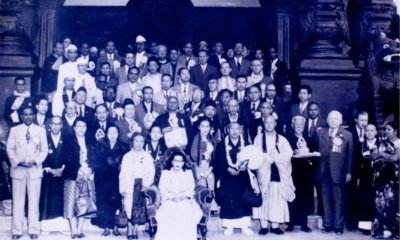

Toward National Buddhism: Thích Nhất Hạnh on Buddhist Nationalism and Modernity in the Journal Phật Giáo Việt Nam, 1956-1959 (Part 2)
-
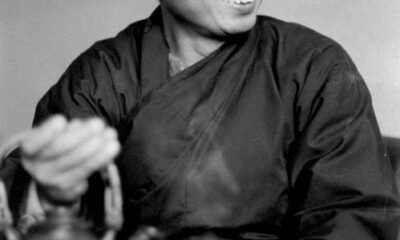

Toward National Buddhism: Thích Nhất Hạnh on Buddhist Nationalism and Modernity in the Journal Phật Giáo Việt Nam, 1956-1959 (Part 1)
-
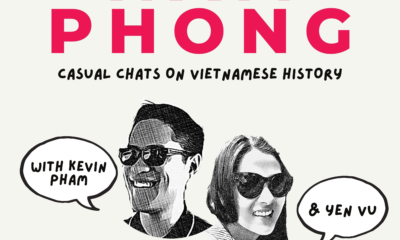

Nam Phong Dialogues: Episode 20 – Democracy and Communism
-
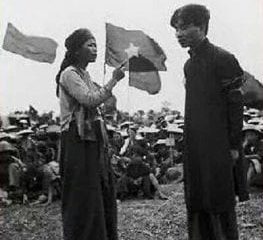

A History of Legal Thought in Vietnam, 1945–1956 – Part 5: Ho Chi Minh’s Legal Thought after the Debate of 1948
-
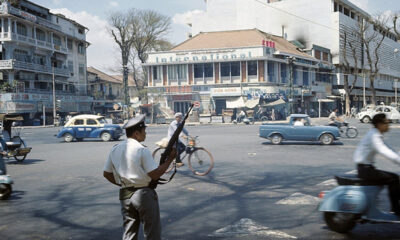

In search of what I’ve lost: Essays by Nguyễn Khải (Part 6)
-
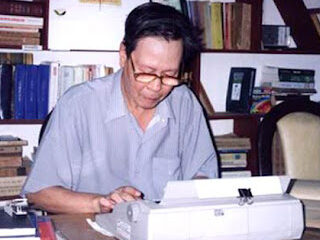

In search of what I’ve lost: Essays by Nguyễn Khải (Part 5)

Translation: The Decision in 2013 of the Central Committee of the Communist Party of China on Certain Major Issues Concerning Comprehensively Deepening Reform

Thủ Đức Demonstration High School: A Modern Educational Policy and Teaching Method of the Republic of Vietnam

Southeast Asia falls into China’s Trans-Asian Railway Network

A Proposed Outline for a Study on Republicanism in Modern Vietnamese History

Tran Le Xuan – Diplomatic Letters

Vietnam’s unresolved leadership question

Rethinking History and News Media in South Vietnam

Pandemics and Morality: Lessons from Hanoi

Democracy in action: The 1970 Senatorial elections in the Republic of Vietnam (Part 1)

“The Vietnam War Was an Unwinnable War”: On Factuality and Orthodoxy
US-VIETNAM REVIEW
-

 Politics & Economy4 years ago
Politics & Economy4 years agoVietnam’s unresolved leadership question
-
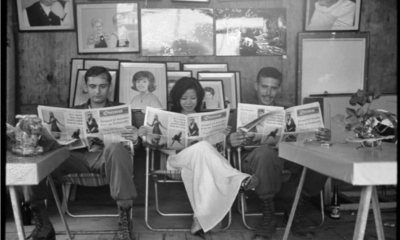
 Politics & Economy1 year ago
Politics & Economy1 year agoRethinking History and News Media in South Vietnam
-

 Society & Culture5 years ago
Society & Culture5 years agoPandemics and Morality: Lessons from Hanoi
-

 ARCHIVES5 years ago
ARCHIVES5 years agoDemocracy in action: The 1970 Senatorial elections in the Republic of Vietnam (Part 1)
-
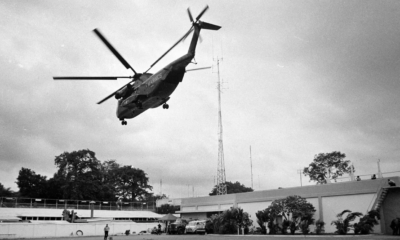
 After 19751 year ago
After 19751 year ago“The Vietnam War Was an Unwinnable War”: On Factuality and Orthodoxy
-

 Politics & Economy4 years ago
Politics & Economy4 years agoThe Limit to U.S.-Vietnam Security Cooperation
-

 Politics & Economy5 years ago
Politics & Economy5 years agoNational Shame: How We (Americans) can learn from Nguyễn An Ninh
-
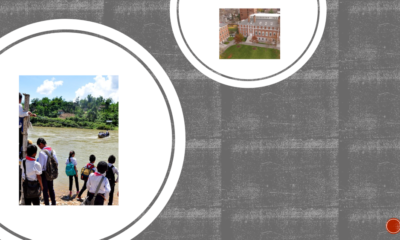
 Politics & Economy4 years ago
Politics & Economy4 years agoUS-Vietnam Partnership must Prioritize Vietnamese Education

